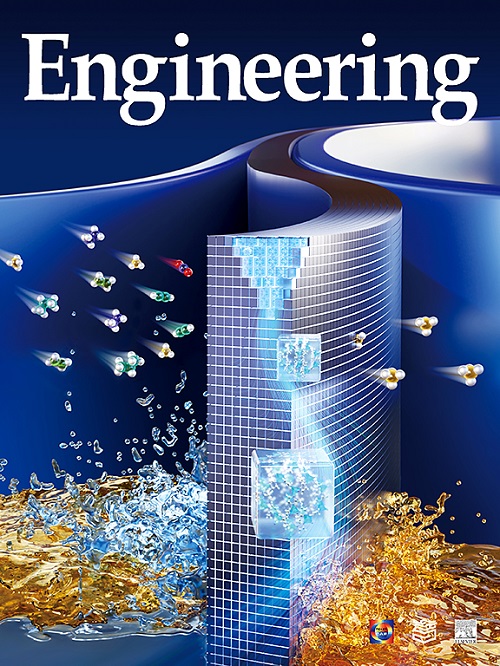Learning-Based Matching Game for Task Scheduling and Resource Collaboration in Intent-Driven Task-Oriented Networks
IF 11.6
1区 工程技术
Q1 ENGINEERING, MULTIDISCIPLINARY
引用次数: 0
Abstract
With the rapid advancement of satellite communication technologies, space information networks (SINs) have become essential infrastructure for complex service delivery and cross-domain task coordination, facilitating the transition toward an intent-driven task-oriented coordination paradigm across the space, ground, and user segments. This study presents a novel intent-driven task-oriented network (IDTN) framework to address task scheduling and resource allocation challenges in SINs. The scheduling problem is formulated as a three-sided matching game that incorporates the preference attributes of entities across all network segments. To manage the variability of random task arrivals and dynamic resources, a context–aware linear upper-confidence-bound online learning mechanism is integrated to reduce decision-making uncertainty. Simulation results demonstrate the effectiveness of the proposed IDTN framework. Compared with conventional baseline methods, the framework achieves significant performance improvements, including a 4.4%–28.9% increase in average system reward, a 6.2%–34.5% improvement in resource utilization, and a 5.6%–35.7% enhancement in user satisfaction. The proposed framework is expected to facilitate the integration and orchestration of space-based platforms.意图驱动任务导向网络中基于学习的任务调度与资源协作匹配博弈
随着卫星通信技术的快速发展,空间信息网络(SINs)已成为复杂服务交付和跨域任务协调的重要基础设施,促进向跨空间、地面和用户段的意图驱动的面向任务的协调范式过渡。本文提出了一种新的意图驱动的任务导向网络(IDTN)框架,以解决SINs中的任务调度和资源分配问题。调度问题被表述为一个包含所有网段实体偏好属性的三面匹配博弈。为了管理随机任务到达和动态资源的可变性,集成了上下文感知的线性上置信度限在线学习机制,以减少决策的不确定性。仿真结果验证了所提出的IDTN框架的有效性。与传统的基线方法相比,该框架实现了显著的性能改进,包括平均系统奖励提高4.4%-28.9%,资源利用率提高6.2%-34.5%,用户满意度提高5.6%-35.7%。拟议的框架预计将促进天基平台的整合和协调。
本文章由计算机程序翻译,如有差异,请以英文原文为准。
求助全文
约1分钟内获得全文
求助全文
来源期刊

Engineering
Environmental Science-Environmental Engineering
自引率
1.60%
发文量
335
审稿时长
35 days
期刊介绍:
Engineering, an international open-access journal initiated by the Chinese Academy of Engineering (CAE) in 2015, serves as a distinguished platform for disseminating cutting-edge advancements in engineering R&D, sharing major research outputs, and highlighting key achievements worldwide. The journal's objectives encompass reporting progress in engineering science, fostering discussions on hot topics, addressing areas of interest, challenges, and prospects in engineering development, while considering human and environmental well-being and ethics in engineering. It aims to inspire breakthroughs and innovations with profound economic and social significance, propelling them to advanced international standards and transforming them into a new productive force. Ultimately, this endeavor seeks to bring about positive changes globally, benefit humanity, and shape a new future.
 求助内容:
求助内容: 应助结果提醒方式:
应助结果提醒方式:


